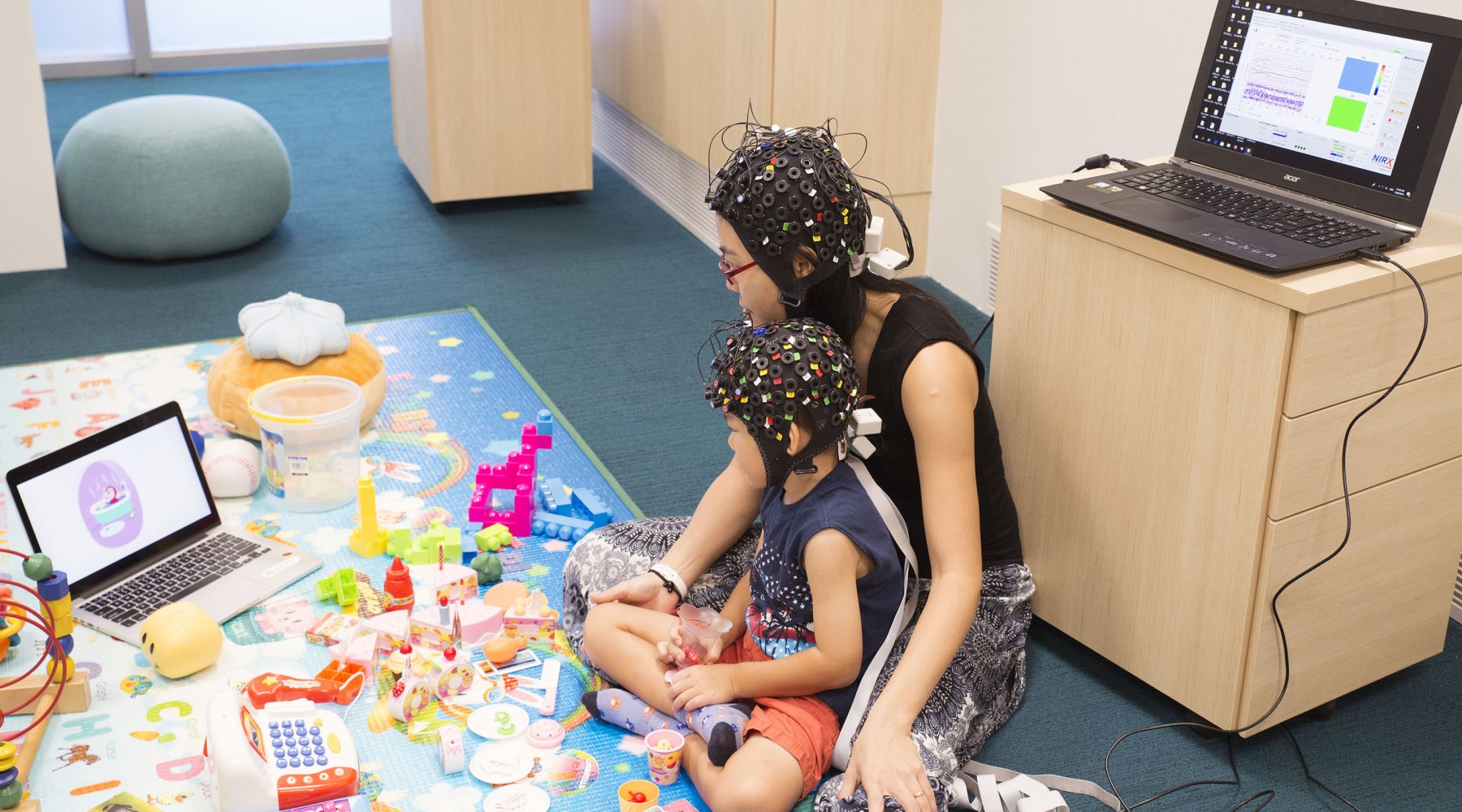Study reveals clues for ECEC services supporting families where parents are disengaged

While it’s no secret that parenting a child can be stressful at times, new research from Nanyang Technological University, Singapore (NTU Singapore) has revealed the effects of the stress of parenting in the brains of both mothers and their children.
The findings will be of interest to those in the early childhood education and care (ECEC) sector as they seek to deliver high-quality service to children and families alike, and to work with and support families as they navigate their parenting journey.
Thirty one pairs of mothers and children were studied, with researchers finding that mothers who reported higher levels of parenting stress had less synchrony in brain activity with their child (all children were aged around three years old at the time of testing) than those who reported lower levels of parenting stress.
The prefrontal cortex was the main brain region monitored for synchrony, significant for its role in planning complex cognitive behaviour, personality expression, decision making, and moderating social behaviour.
In general, when a parent and child show highly similar brain activity in the same area(s) of the brain (i.e. greater synchrony), it suggests that both are highly tuned in to each other’s emotional states.
This finding is significant for those working in ECEC, as, in the event a parent and child have poor synchrony, the child will require more support from their educators to make decisions, moderate their behaviour, and understand social cues.
The causes of parental stress are many and varied, but typically, parental stress occurs when the demands of parenting exceed the coping resources that a parent perceives they have available. Excessive parenting stress can block maternal sensitivity, lead to reactions that punish the child and negatively affect the parent-child relationship for the long term.
Senior author Assistant Professor Gianluca Esposito said the study shows that parenting stress “may very well weaken mother-child communication early in the process of social interaction”.
“Our observations likely stem from the stressed mother’s reduced ability to share her child’s perspective. This inability to appreciate the child’s viewpoint may reduce the quality of parental engagement and undermine the mother-child relationship in the long run.”
To access the study, which was conducted in collaboration with researchers from the United States’ National Institute of Child Health and Human Development and Italy’s University of Trento and University of Padova, please see here.
Image credit: Nanyang Technical University Singapore. In the featured image, a mother and her child watch an animation as their brain activity is measured by a non-invasive instrument called functional Near-infrared Spectroscopy (fNIRS) caps.
Popular

Practice
Provider
Quality
Research
Workforce
New activity booklet supports everyday conversations to keep children safe
2025-07-10 09:00:16
by Fiona Alston

Quality
Practice
Provider
Workforce
Reclaiming Joy: Why connection, curiosity and care still matter in early childhood education
2025-07-09 10:00:07
by Fiona Alston

Policy
Practice
Provider
Quality
Research
Workforce
Beyond the headlines: celebrating educators and the power of positive relationships in early learning
2025-07-07 10:00:24
by Fiona Alston













